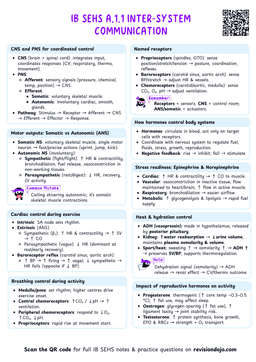Controllable and Uncontrollable Stressors
Stressor
A stressor is an event or situation that causes a stress response in the body. Stressors can be physical or psychological, and can be internal or external.
- Stressors can be categorized as:
- Controllable: Situations where you can directly influence the outcome.
- Uncontrollable: Situations where you have little or no control over the outcome.
- Controllable Stressors (Athlete can manage or influence)
- Preparation & Training: Adjusting fitness, skills, and mental preparation.
- Nutrition & Recovery: Managing diet, hydration, and sleep.
- Time Management: Balancing training, competitions, and personal life.
- Tactics & Strategy: Adapting game plans and decision-making during play.
- Mindset & Focus: Using self-talk, visualization, and relaxation techniques.
- Uncontrollable Stressors (Beyond the athlete’s control)
- Injuries: Unexpected setbacks affecting performance and training.
- Weather Conditions: Extreme heat, cold, or wind impacting competition.
- Referee Decisions: Unfair calls or unexpected rulings.
- Opponent's Performance: Facing stronger competitors or unpredictable tactics.
- External Pressure: Expectations from coaches, media, and fans.
Problem-Focused Social Support
- Use problem-focused coping when you have the power to change the situation. It's about action and solution. Examples include:
- Receiving technical, tactical, or training advice from coaches or teammates to optimize performance.
- Consulting medical professionals for injury management and rehabilitation.
- This type of support helps athletes manage stress by actively working towards solutions
Emotion-Focused Coping: Managing Your Feelings
- Emotion-focused coping involves strategies to manage the emotional response to a stressor.
- It is most effective when the stressor is uncontrollable.
Key Strategies
- Relaxation Techniques: Deep breathing or meditation to reduce anxiety.
- Positive Reappraisal: Finding a silver lining or focusing on personal growth.
- Social Support: Talking to friends or family to express feelings and gain perspective.
Emotion-focused Social Support Examples in Sport:
- Expressing frustration, anxiety, or disappointment to someone who listens and offers empathy, reassurance, encouragement, and motivation.
- Combination of Coping Strategies:
- Social support can blend problem-focused and emotion-focused coping.
- Example: A coach provides task-relevant instructions and motivation, or a physiotherapist helps an athlete build confidence during injury recovery.
- Paradox of Social Support:
- Just knowing that social support is available can reduce stress, even if it is not actively used.
Avoid relying solely on emotion-focused coping for controllable stressors. It may provide temporary relief but won't solve the underlying problem.
Explain the difference between emotion-focused and problem-focused coping in sport, using relevant examples. (2 marks)
Solution
- Award 1 mark for correctly defining each type of coping with a relevant sporting example.
- Emotion-focused coping (1 mark):
- Definition: Managing emotions rather than directly addressing the stressor.
- Example: A footballer taking deep breaths or using positive self-talk to calm nerves before a penalty kick.
- Problem-focused coping (1 mark):
- Definition: Addressing the stressor directly by taking action to solve the problem.
- Example: A tennis player analyzing their opponent’s playing style and adjusting tactics to improve performance.
Note:
- Full marks (2/2) for clear definitions and relevant sporting examples.
- Partial marks (1/2) for defining both types without examples or providing only one correct example.
- No marks (0/2) if definitions or examples are incorrect or missing.
Matching Coping Strategies to Stressors
- The key to effective coping is choosing the right strategy based on the nature of the stressor:
- Controllable Stressors: Use problem-focused coping to address the root cause.
- Uncontrollable Stressors: Use emotion-focused coping to manage your emotional response.
How do cultural differences influence coping strategies? Are some cultures more inclined toward problem-focused or emotion-focused coping?
Building Coping Flexibility
- Coping flexibility is the ability to adapt your coping strategy based on the situation.
- This involves:
- Assessing the Stressor: Is it controllable or uncontrollable?
- Choosing the Right Strategy: Match the coping approach to the situation.
- Reflecting and Adjusting: Evaluate the effectiveness of your strategy and make changes if needed.
Research shows that individuals who develop coping flexibility experience greater resilience and better outcomes in stressful situations.
AnalogyThink of coping strategies as tools in a toolbox. Problem-focused coping is like a hammer, useful for fixing things. Emotion-focused coping is like a cushion, helpful for softening the impact when you can't change the situation.


